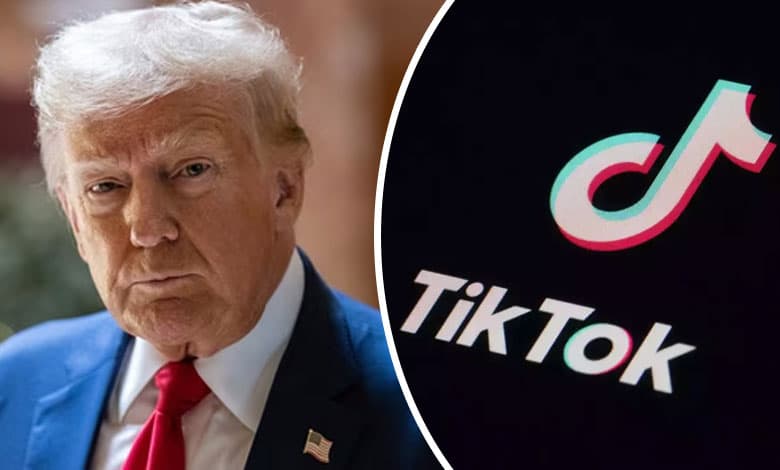Trump asks Supreme Court to delay TikTok ban so he can weigh in after he takes office
Former President Donald Trump has urged the Supreme Court to postpone the impending TikTok ban set for January 19, 2025, while his administration seeks a political resolution to the issue. The move comes as TikTok, and the Biden administration submit opposing legal briefs in an escalating battle over national security concerns and free speech rights.

Washington: Former President Donald Trump has urged the Supreme Court to postpone the impending TikTok ban set for January 19, 2025, while his administration seeks a political resolution to the issue. The move comes as TikTok, and the Biden administration submit opposing legal briefs in an escalating battle over national security concerns and free speech rights.
Trump’s amicus brief, filed on Friday, refrains from taking a clear stance on the merits of the case. Instead, it requests the Court to delay enforcement of the statute requiring TikTok to divest from its China-based parent company, ByteDance, or face a nationwide ban.
Table of Contents
Supreme Court Showdown Over TikTok Ban
The Supreme Court is slated to hear oral arguments on January 10, 2025, to determine whether the law mandating TikTok’s divestment violates the First Amendment by unlawfully restricting free speech. The law, signed by President Joe Biden in April 2023, has faced fierce opposition from TikTok and its parent company, ByteDance, which filed a legal challenge shortly after its enactment.
Earlier this month, the U.S. Court of Appeals for the District of Columbia Circuit upheld the statute, prompting TikTok to take the case to the nation’s highest court.
Also Read: 19 Pakistani soldiers, 3 Afghan civilians killed in clashes between Afghan-Pak border forces
Trump’s Evolving Stance on TikTok
This development highlights Trump’s changing position on TikTok. During his first term, Trump attempted to ban the app over national security concerns. However, he later joined TikTok during his 2024 presidential campaign, using the platform to engage younger audiences, particularly male voters.
Despite his past efforts to block the platform, Trump now opposes banning TikTok outright, stating earlier this year that while national security risks persist, a ban is not the solution.
National Security vs. Free Speech
The Biden administration argues that TikTok poses a national security threat due to its ties to China. Officials claim Chinese authorities could potentially compel ByteDance to share sensitive user data or manipulate content on the platform. However, TikTok’s legal team counters that these fears are speculative, asserting there is no evidence of China exploiting TikTok for such purposes.
TikTok’s legal filing highlights the platform’s U.S. operations’ independence and accuses the government of relying on hypothetical risks rather than tangible threats.
Political Resolution on the Horizon?
In his filing, Trump emphasized his preference for resolving the TikTok issue through “political means” once he takes office. Meanwhile, TikTok CEO Shou Chew met with Trump at his Mar-a-Lago club last week, fueling speculation about potential negotiations.
The TikTok ban remains a divisive topic, with broader implications for U.S.-China relations, free speech, and tech policy.
